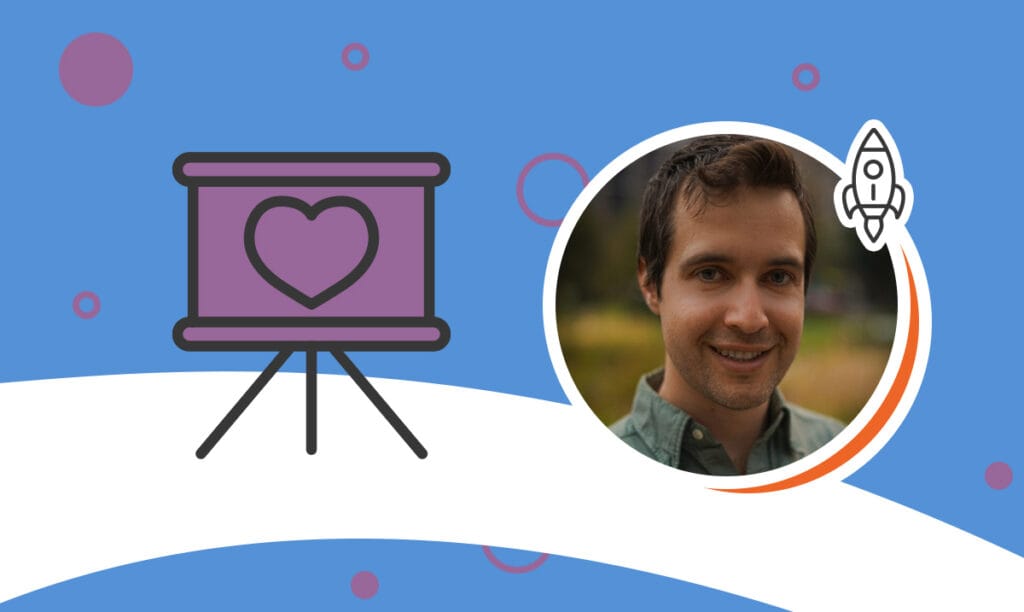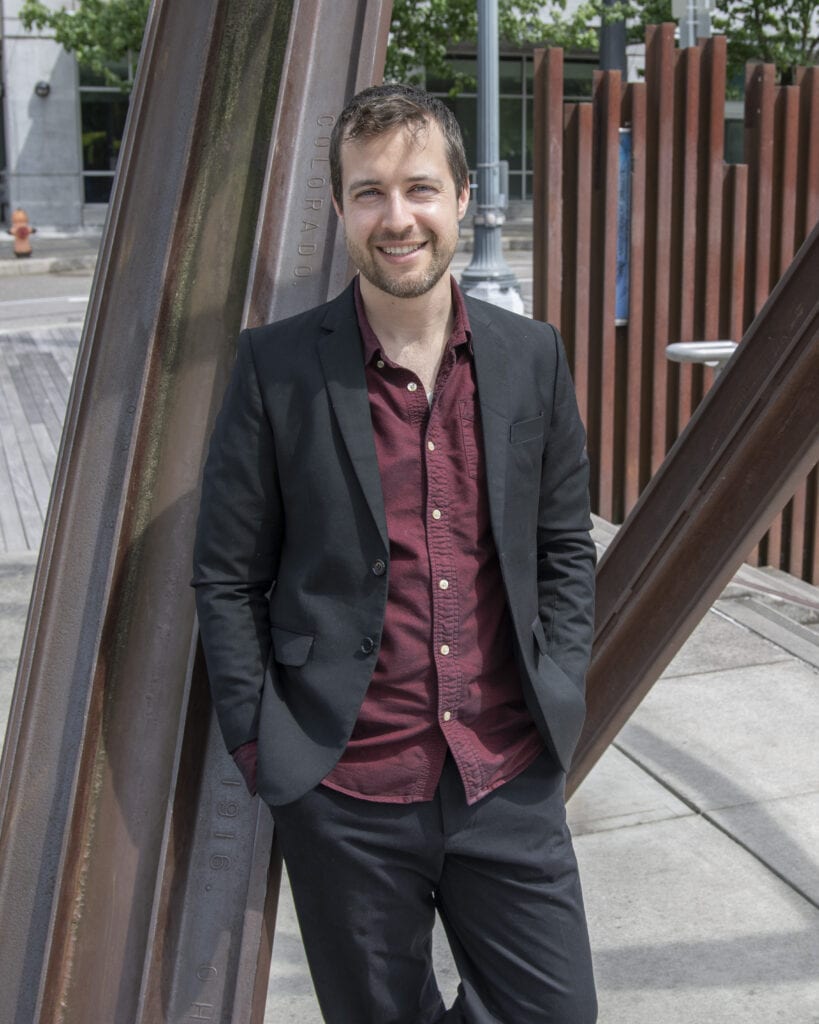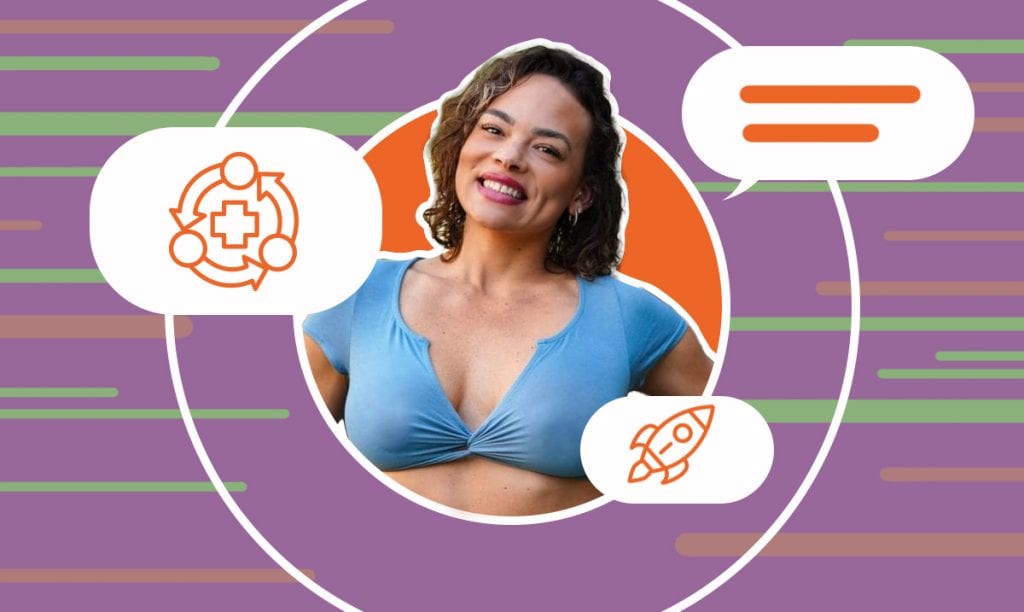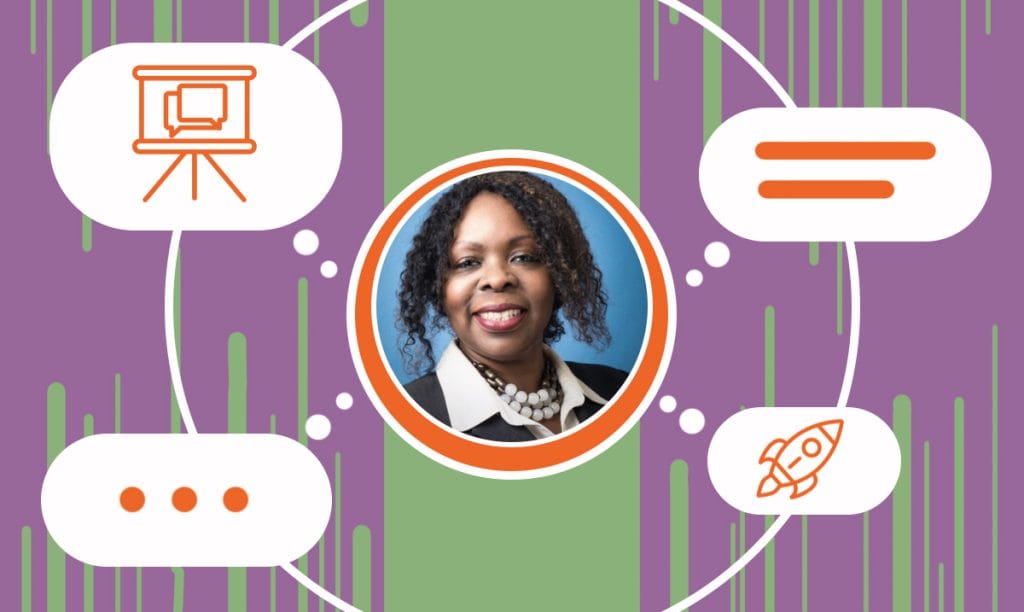Lin Mezori, the matriarch behind Pure Recovery, has transformed the wellness and recovery space with her vision of blending innovative therapies and ...
Eric Leonhard’s Personalized Approach to Modern Dating
Written by: Esther Strauss
Esther is a business strategist with over 20 years of experience as an entrepreneur, executive, educator, and management advisor.
Published on October 13, 2023

In this interview, we discussed the growing trend of location-independent dating and the frustrations people face with online dating and dating apps. As a dating coach, Eric Leonhard shares how he helped individuals resolve their dating problems, focusing on personalized solutions rather than standardized approaches. He also emphasizes the importance of acknowledging our own limitations and seeking input from others. Throughout the interview, he highlights the significance of investing in quality services and the challenges he faced in building his business. Join us as we talk about Eric’s journey and insights into the world of dating coaching.
SBS – How did you identify the demand for dating coaching in Portland?
Eric – Well, first of all, I have to say that I have two websites. I have one at the local level for Portland, and then I have the location-independent one. That’s the one that’s really growing. It’s called datecrafting.com.
Your question was how to identify a demand for dating. The simple answer is that everyone complains about dating, nobody knows how to do it, and everyone vents frustrations, especially regarding online dating and dating apps. Everyone’s very frustrated with those right now. But it’s all around us, so it’s pretty obvious there’s a need for it.
At the same time, I learned through my studies in psychology that no one at the university level was training. How do you help people who need dating problems resolved? The university level is training for larger clinical issues, standardized degrees, typically a marriage family therapy degree. And then there’s all that in-between stuff they don’t consider quite as big of a clinical issue. The majority of people — anyone single and actively dating — may have a lot of frustration.
SBS – What sets your business apart from other dating services that are out there?
Eric – I specifically teach the methods not only to properly build chemistry — basically how to go on a date — but also methods in what I call exposure. How are you meeting people, to begin with? How do we actually get out there to do that?
I teach a wide variety of angles and subjects here, depending on what the needs are. Maybe they’re a little shy and need basic comfort building for socializing. Or maybe they’re not shy at all, but they’re still doing something wrong on the date.
What makes my program unique is that I do a mock dating service where, if you’re a male, I can send you out with a female. You go to dinner for an hour and have a conversation; this way, we get the female perspective. The idea was to be scientific, and that means acknowledging what my limitations are.
And my limitation is that I’m not a woman; I’ve never been on a date with a man. We’ve got other women out there who have, and I want their perspective on this, so let’s send the client out on a practice date. I do work more with men, but I take on female clients as well, and I also have male mock daters for those.
So, there is a practice. The diagnostic process of doing these mock dates is what really sets me apart. I’m not the first person to have thought of that, but from what I’ve heard from the clients, any other one they’ve tried is just not adequate. With them, you’re doing phone calls with people halfway across the world or something like that. I actually put people together as long as they’re in one of the territories where I have daters. I put them in person on a real date where you go to a restaurant. Otherwise, it would be done virtually.
SBS – How did you determine your service pricing?
Eric – At first, I had no idea what the heck I was doing. I started small. I started at $50 an hour. And the idea was to be attractive to people. But I quickly realized that I’ve got a lot of wealthier clients, and it almost doesn’t matter if it’s $50, $100, or $200 an hour to them if they have the money. More importantly, I realized that some people were turned away if this was a cheap service. They wanted to invest. But when I first started this, I was just playing it by ear.
I did have those people who were impressed by how cheap it was and loved that it made it affordable. But when I would do my sales calls, and when someone would inquire about the service, and I’d start saying things like, “Oh, it’s $50 or later, $60, $70, and we’re going from there,” they would make comments all the time. They would say, “That’s it?!” and be really surprised, like they were expecting and ready for more. Therefore, it dawned on me, “Oh, I think people are willing and able to pay for a quality service. They don’t mind paying more if it’s a quality service.”
And this was before we had this inflation crisis here. So, $50 an hour was wow. Of course, I wasn’t able to sustain the business on that alone by itself at first. I was working at restaurants. I was doing things on the side. I realized my mistakes and grew my volume by adjusting and having a higher price. I actually gained a reputation for being a quality service because of that.
SBS – Do you think it depends on the audience, or do people just believe the quality is better if it is more expensive?
Eric – Yeah, I think they believe quality is better, honestly. In my industry, with coaching, we’re talking about people’s dating lives. This is huge. Maybe they go to a cheap restaurant and say, “Okay, no problem. I don’t have to eat there again, or I can try a different restaurant next time.” But with this coaching stuff, you really want to get it right.
Because of the amount of work you have to put into this — it requires practice reciting, just like learning a language, an instrument, or any other skill — you must work at it several hours a week. So, because it’s such a big investment, I’m not looking for a client who isn’t willing to invest. I want someone willing to make that jump.
And they realize that, “Okay, this is important. I’m going to give it my all, that includes financially.” If there’s a perception that, “Oh, do an easier program, one that’s lower quality, but it’s affordable,” that’s not necessarily the attitude we want, right? We want them to put this on the front burner, to give it their all. So, I think I am looking for a client willing to invest more and who sees the value. And that obviously means I have to return the service.
SBS – How have you adapted your services to clients outside of Portland? Are you trying to reach the people more virtually or on-site? What are your methods?
Eric – That’s the next step for me right now. I did start this in Portland, Oregon. That’s where I launched it. I had a lot of success there, actually, and I’m now considered the go-to dating coach for not only Portland but the entire state of Oregon. There’s admittedly not a lot of us. I started getting phone calls from other parts of the US and even people from Europe, so I’m already international. A little bit, anyway.
I mentioned the mock date earlier. I started getting calls from people across the country in New York City, which is on the opposite side of the US. And not only that. It’s New York City, and they’ve got options for coaches. They have people there locally. I started asking, “How did you find me? Why choose me? Why hire me?” And a lot of them told me, “Well, it’s those mock dates you do. That’s what I was searching for, and you seem to be the one who’s executing it perfectly, exactly like I envisioned.”
That’s where I hear those stories about how they hired someone for a mock day, and someone in New York ends up on a phone call with someone in England. It doesn’t make any sense. I want people in person — when possible — at the restaurant doing an actual date.
Now it’s time to continue expanding because I’m already getting a lot of inquiries from clients who want to hire me from other States across the country, as well as the occasional one in Europe.
After growing at the local level, which is a territory I will still hold on to, I started datecrafting.com. This is more location-independent, and I’m getting the social media going. Social media, unfortunately, wasn’t a huge part of my process previously, just because I couldn’t stand it, honestly, but I hired someone to take care of that for me right now. So, I’m focusing on being location-independent and marketing myself to social media.
SBS – Did you have some strong website coverage before that, or do you believe it was just a recommendation from mouth to mouth? How did that work?
Eric – From what I understand, a lot of it was if you search for dating coaches, you can find many different things. However, I realized many people were searching for mock date services specifically, which led them to me because I have all that described on a website. There are not very many people doing it. And again, the people doing it are not doing it in my caliber. That’s what I learned.
SBS – What strategies do you use for client retention in the dating field?
Eric – This actually goes back to something else I do that is very unique. No one else is doing it. In fact, many people and business professionals have advised me not to do this anymore. I have a pay-as-pay-as-you-go method.
Instead of you signing a contract with me and putting down a lump sum of money for a certain amount of appointments — a package, in other words — people get a pay-as-they-go, which makes it more affordable. It also makes the stakes less.
If, for instance, they don’t like the service, don’t need it, or like me, but maybe we’re just stylistically different, and we don’t have that rapport they’re looking for, they can exit it. Now, the reason why this is helping you retain clients, though, is because it makes it affordable. You don’t have to put down $5,000 right away if you don’t have it. You don’t have to finance that. They perceive it as being lower risk. What if they put down the $5,000, and the program was no good?
I have many clients who’ve already done that with other coaches before, and they got just a poor quality service, or the material itself was garbage. That risk is no longer there by doing pay-as-you-go. They know they’re not going to get refunds on anything. I’ve never had anyone ask, but if they have to get out of it, they know they can. Consequently, it creates a certain bond of trust between us. They feel good about me because they can feel relaxed with their money going into this. They pay me for the service they enjoy, and there’s no pressure on them that they may be wasting investment.

I don’t know if it’s necessarily the best idea for everyone else. It works for me because about 50% of my clients have already hired a dating coach, a quasi-dating coach, a pickup artist, or someone, and they lost five or six thousand dollars. They learned nothing useful from it. In fact, some of my clients have even been assaulted trying to use some of the methods that other coaches give them because they’re aggressive and toxic. So there’s a market for people who want good quality coaching but are too nervous and apprehensive about putting down another five or six thousand dollars for that information.
SBS – What were the biggest challenges when you started your business?
Eric – Well, the business challenges were that I knew nothing about business at first. And I didn’t know anything about marketing or accounting. If I tried to research it, every source said, “Well, you gotta establish a model, and you gotta have a mission statement, and that’s it.” Great. I get it.
But I decided to put up a website and see where this goes. Just hit the ground running, and obviously, there will be some mistakes. So I had to learn everything as I go. I didn’t study business. I know nothing about running a business. Literally nothing. I studied psychology. That’s what I was into. So that was the big challenge.
I could have made more money in my earlier years doing this if I had followed some of this advice about how to run a business and how to plan this effectively. I frankly don’t have the patience for that. I did probably make less money, but that was okay with me because I got to relax about it. I didn’t have a lot of overhead or investment into starting up, which was really nice. So, I took a different path. The stakes were lower. That was the main benefit there.
And then the challenge was that I wasn’t making much money, just throwing this together as I went. I had to have a limit at the time — no more than three clients per week. That’s because I wanted to develop my curriculum and make sure I was giving them a quality service, but I had to invent that and adjust it as I went.
These days, I do 30 clients per week because I know what I’m doing now. That was really the challenge: I had to limit, I had to cap my income, my ability to take clients.
SBS – How did you build your team if you have one and what do you prioritize when you hire people?
Eric – I do have a team, principally the various mock daters I use. I have several around the country, too. I also have a local photographer. Then, if someone wants photos but they’re not local to where I live, I’ll have a system for finding one.
I’m going to talk about mock dating because that’s the principal thing I hire for. I need men and women who just naturally love to connect with people. In the past, I’ve taken women who were either studying or already worked in the field, such as teaching or maybe in nursing — any kind of helping and any career path where you just had to be born with it. The inclination, the aptitude for working with people because you love them, is not something you can train into someone. They have to have already been born with it.
As far as how advanced they are in their dating skills and whatnot — it’s completely unimportant because the mock date is supposed to reflect a realistic dating experience as much as it can. And that means in the real world, you’re not going out on dates with people who are experts in dating science but average, the general population.
So that part was all good and fine, but what really mattered to me was that these men and women were sweet, and they wanted to help people. They love socializing and going out to dinner for an hour just to be able to talk to someone. They naturally like people. That is definitely the biggest qualifier.
SBS – How do you market your services? How do you attract new clients? Do you use some marketing strategies for advertising?
Eric – I’ve tried a variety of things. It’s funny. I found that advertising — at least on the local level where you put up ads around gyms and newspaper publications — has not netted me much more business, if any. And what has been working very well for me is word of mouth and networking.
For instance, I’ve talked to matchmakers in the area where I live. I do partnerships with someone who’s a coach for clothing and wardrobe styling. We’re always sending referrals to one another, so it’s a combination of networking, honestly, and then word of mouth. And I get clients who hire me, and they’re like, “My therapist, my psychologist told me about you.” And I’m like, “Who’s your psychologist?” I have no idea who that is. I’ve never talked to that person. But this therapist or psychologist has taken clients of mine before, and they say, “This guy’s really great. He’s helping with the dating.” So they’re now sending out referrals to clients despite me having never met these people.
SBS – How has client feedback shaped the evolution of your services and the process?
Eric – Gosh, client feedback is everything, honestly. Everything I’ve been telling you about me — how I know I’m being successful and how people find me — comes from feedback. People tell me how they found me and why they hired me, so it shapes everything. At the same time, you have to be careful. There could have been someone’s highly individualized opinion that you wouldn’t want to generalize to everybody.
One of the big mistakes I was making was not checking in with my clients often. I was pushing my own agenda on them for what I thought was right and forgetting to ask, “Hey, what’s actually important to you? I have my own analysis, but do you have an opinion on priorities?”
That cost me some clients, and some of them would tell me that. So after a while, I realized, “Yeah, you’ve got a point. I think I have a pretty good service here, but I have not been checking in with my clients enough.” So, I started to make some changes to that. It’s been everything. That’s how I know how my performance is based on client feedback, and feedback comes in many forms.
I’m on pay-as-you-go here, and I have clients working with me for years because they love what I’m putting out there and want more of it. They can leave anytime they want to, right? So that is a form of feedback, too, the fact that they’re very satisfied with their dating lives, and they want continuous, many say even affordable consulting. They see that as worthwhile.
For more insights, tips, and personalized advice, connect with Eric Leonhard on Instagram and Facebook to continue the conversation and explore the world of modern dating.
Subscribe to Our Newsletter
and gain insider access to cutting-edge business insights and trends.
Featured Resources

How Lin Mezori Is Transforming the Recovery Industry
Published on January 2, 2025
Read Now

How MedAssent DDS Supports Dental Medication Management
Published on September 2, 2024
Lauren Fang is a pioneering force in digital health, co-founding MedAssent DDS with a vision to revolutionize dental care. With a deep-rootedconnect ...
Read Now

How Dr. Arlayn Castle Built a Transformational Coaching Business
Published on August 2, 2024
In this interview, we are excited to speak with Dr. Arlayn Castle, the visionary founder of Castle of Knowledge. Specializing in life andtransformat ...
Read Now
Comments